
Photo: Barry King
/WireImage.com
/WireImage.com
The star of the new TV show FlashForward loves stories of survival against all odds,
novels that blow his mind, and, of course, his mother's memoir, which includes one of the
bravest lines he's ever read.
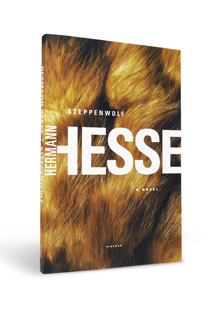 Steppenwolf
SteppenwolfBy Hermann Hesse
This book has a mystery and a magic—it's rather like a great German Expressionist painting, with a very dense, dark palette. By day, the protagonist lives as a bourgeois divorcé, but in the night, he becomes what he calls the wolf, free of all social conventions. It was startling to see his two natures battle within him: the animal and the spiritual, the human and the transcendent. I read it as a teenager, and it sort of blew my mind with questions I hadn't pondered before.
A last word: I'd also put one of Hesse's other novels on this list: Siddhartha. It's a great one to pass on, and it paved the way for allegorical books like Paulo Coelho's The Alchemist.
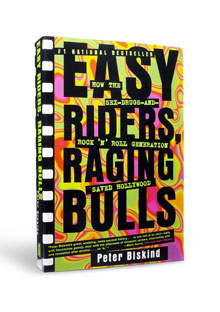
Easy Riders, Raging Bulls
By Peter Biskind
This is a look back at American cinema in the '70s, which was this huge shift from the big movie studios to the Scorseses of the world. For me, three things stand out: its great insight into that period of cinema, the brilliance of visionary directors like Scorsese and Lucas and Spielberg, and also the drug-fueled, raging madness of it all. It's about creative filmmaking and brave, fresh writing, and breaking away from a formulaic system.
A last word: It's certainly a must-read for anyone in the movie business or interested in cinema. It gets you clued in to where we are and how we got here.
By Peter Biskind
This is a look back at American cinema in the '70s, which was this huge shift from the big movie studios to the Scorseses of the world. For me, three things stand out: its great insight into that period of cinema, the brilliance of visionary directors like Scorsese and Lucas and Spielberg, and also the drug-fueled, raging madness of it all. It's about creative filmmaking and brave, fresh writing, and breaking away from a formulaic system.
A last word: It's certainly a must-read for anyone in the movie business or interested in cinema. It gets you clued in to where we are and how we got here.
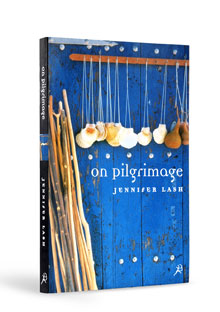
On Pilgrimage
By Jennifer Lash
This is one of the books my mother wrote, and it's a testament to her spirit and nature. She was diagnosed with breast cancer in the '80s. It was a very aggressive tumor, caught late. As a consequence, she had to reevaluate her life, as we all did in the family. Suddenly the subject of mortality is staring you right in the face. How do you deal with it? Well, she dealt with that by putting on a pair of Nikes and a rucksack and setting off on a pilgrimage. She took a ferry to France, traveled to Lourdes and then all the way across the north of Spain to this wonderful city, which I urge anyone to visit, called Santiago de Compostela. She didn't want anyone in the family to go with her. The pilgrimage was about meeting other people; it was an exchange of faith, understanding, religions. To me, the book is a great insight into a side of my mother I hadn't heard about or witnessed before—this conversation she was having with cancer.
A last word: The most amazing line in the book, I think, is one of the bravest I've ever read: "Poor cancer." To look at cancer as this impoverished entity, rather than something to fear, or to have hatred for—you realize this is a book about understanding.
By Jennifer Lash
This is one of the books my mother wrote, and it's a testament to her spirit and nature. She was diagnosed with breast cancer in the '80s. It was a very aggressive tumor, caught late. As a consequence, she had to reevaluate her life, as we all did in the family. Suddenly the subject of mortality is staring you right in the face. How do you deal with it? Well, she dealt with that by putting on a pair of Nikes and a rucksack and setting off on a pilgrimage. She took a ferry to France, traveled to Lourdes and then all the way across the north of Spain to this wonderful city, which I urge anyone to visit, called Santiago de Compostela. She didn't want anyone in the family to go with her. The pilgrimage was about meeting other people; it was an exchange of faith, understanding, religions. To me, the book is a great insight into a side of my mother I hadn't heard about or witnessed before—this conversation she was having with cancer.
A last word: The most amazing line in the book, I think, is one of the bravest I've ever read: "Poor cancer." To look at cancer as this impoverished entity, rather than something to fear, or to have hatred for—you realize this is a book about understanding.
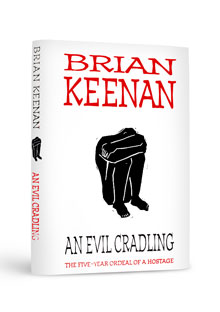
An Evil Cradling
By Brian Keenan
This book had a profound effect on me when I first read it in the early 1990s. It's the true story of two men forced together from opposite sides of a conflict: John McCarthy is from England; Brian Keenan is Irish and lived in Belfast through the Troubles. Both find themselves in Beirut and are kidnapped, crammed into a car, taken to a building, and locked up for over four years. It's the most harrowing and gruesome story. But it's also about the two of them coming together despite their mutual differences and how they began to depend on each other. The book includes their relationship with a terrorist—a young, disenfranchised boy who loves the idea of coming into their room in the middle of the night and bashing them over the head with a Kalashnikov. It's an extraordinary journey of survival against all odds. I lived in Ireland for a short period as a young boy, and I'm also a middle-class English guy, so I felt, in some ways, that both men spoke to me.
A last word: Eventually, I met the two of them. I wouldn't call them my heroes, but I respect what they've gone through, and the way that they've come out the other side. I find their story inspirational and unique.
By Brian Keenan
This book had a profound effect on me when I first read it in the early 1990s. It's the true story of two men forced together from opposite sides of a conflict: John McCarthy is from England; Brian Keenan is Irish and lived in Belfast through the Troubles. Both find themselves in Beirut and are kidnapped, crammed into a car, taken to a building, and locked up for over four years. It's the most harrowing and gruesome story. But it's also about the two of them coming together despite their mutual differences and how they began to depend on each other. The book includes their relationship with a terrorist—a young, disenfranchised boy who loves the idea of coming into their room in the middle of the night and bashing them over the head with a Kalashnikov. It's an extraordinary journey of survival against all odds. I lived in Ireland for a short period as a young boy, and I'm also a middle-class English guy, so I felt, in some ways, that both men spoke to me.
A last word: Eventually, I met the two of them. I wouldn't call them my heroes, but I respect what they've gone through, and the way that they've come out the other side. I find their story inspirational and unique.
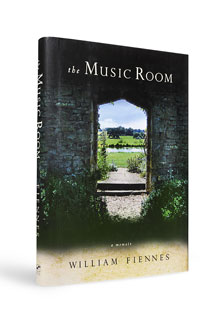
The Music Room
By William Fiennes
William, my cousin was brought up in an amazing place called Broughton Castle, which has been in his family for generations. In this memoir, he shares amazing observations about the house, which is stuffed with history going back to Oliver Cromwell. I get a real joy from Will's brilliant, delicate observations. But what I love is getting to know his wonderful, fresh, vigorous but scary older brother Richard, who suffered from severe epilepsy. The book is essentially Will's conversation with Richard, who, sadly, passed away a number of years ago. The story begins in a nearby chapel, with a visiting preacher striking a match and talking about light. And as that light is burning, you realize this is about the life of someone really significant, and that this life will eventually burn out.
A last word: The last time that I properly visited Broughton Castle was when I was doing the movie Shakespeare in Love, part of which was shot there, and I stayed the night while we were filming. It is a magical place.
By William Fiennes
William, my cousin was brought up in an amazing place called Broughton Castle, which has been in his family for generations. In this memoir, he shares amazing observations about the house, which is stuffed with history going back to Oliver Cromwell. I get a real joy from Will's brilliant, delicate observations. But what I love is getting to know his wonderful, fresh, vigorous but scary older brother Richard, who suffered from severe epilepsy. The book is essentially Will's conversation with Richard, who, sadly, passed away a number of years ago. The story begins in a nearby chapel, with a visiting preacher striking a match and talking about light. And as that light is burning, you realize this is about the life of someone really significant, and that this life will eventually burn out.
A last word: The last time that I properly visited Broughton Castle was when I was doing the movie Shakespeare in Love, part of which was shot there, and I stayed the night while we were filming. It is a magical place.
Three more he squeezed on his list:
 Favorite Classic:
Favorite Classic: The Portable Chekhov
"I love the short stories of Chekhov. Beautiful, heart-wrenching, funny, mysterious, very simple—they're about human contradictions and fallibility. If I had to pick one, it would be "The Kiss.""
 Favorite Poet:
Favorite Poet: Keith Douglas Collected Poems
"Keith Douglas, a Second World War poet who died in his 20s in combat. He always spoke of how he felt this sense of impending doom. Had he lived, he would have been, with no doubt, the poet laureate. His poem "Vergissmeinnicht" ("Forget Me Not") is riveting and haunting—there's a terrible beauty to it."
 What He's Going to Read Next:
What He's Going to Read Next:Resistance by Owen Sheers
"It's about the Nazi invasion of this very small village in Wales. I'm in Los Angeles, and it's in a pile of books on my nightstand in London.'"
— As told to M Healey
More Books That Made a Difference




